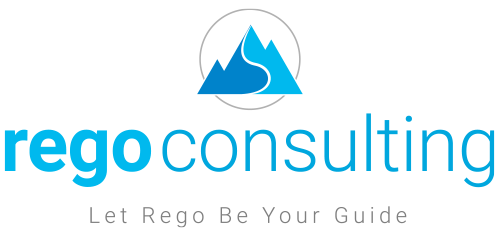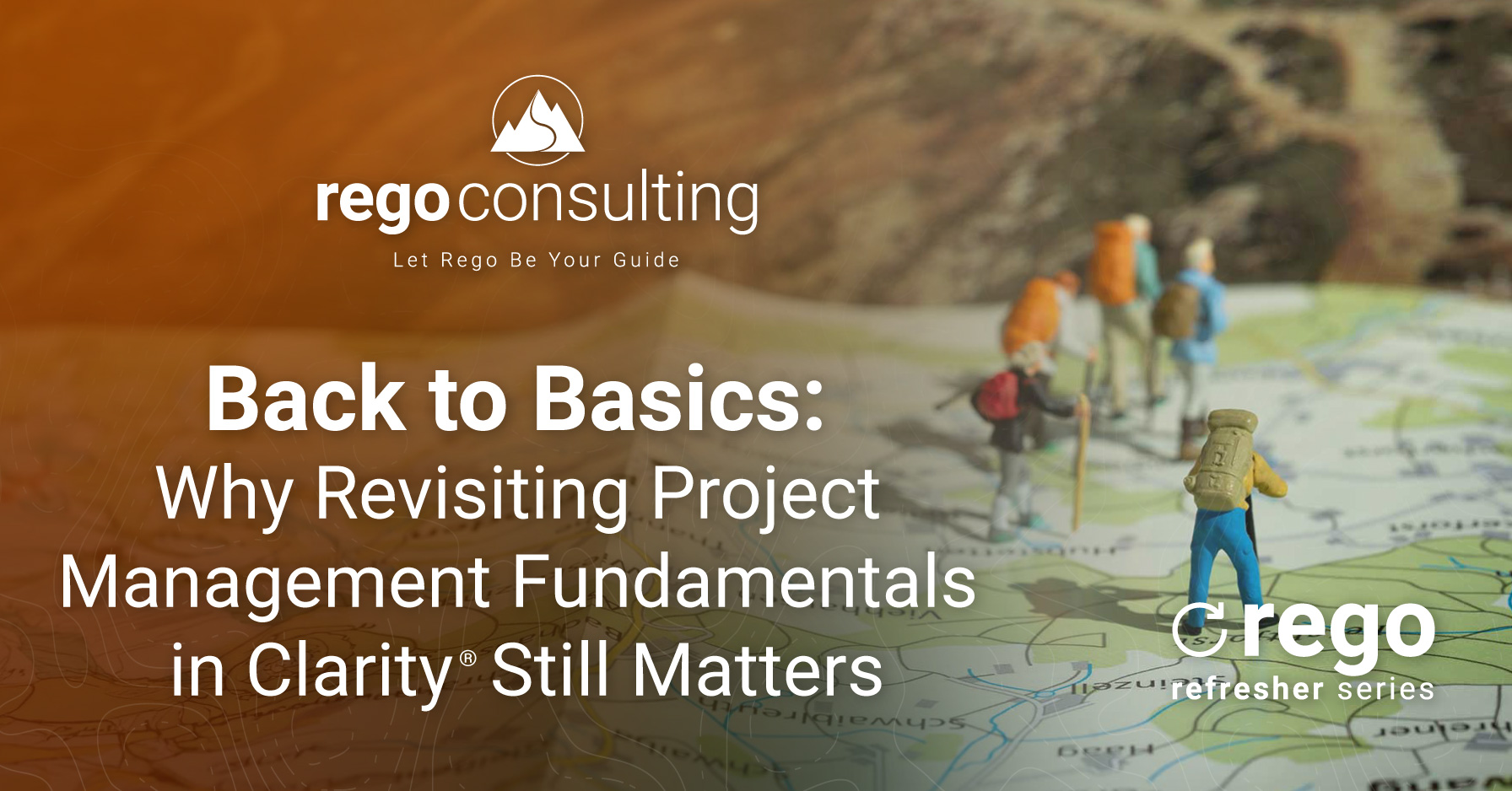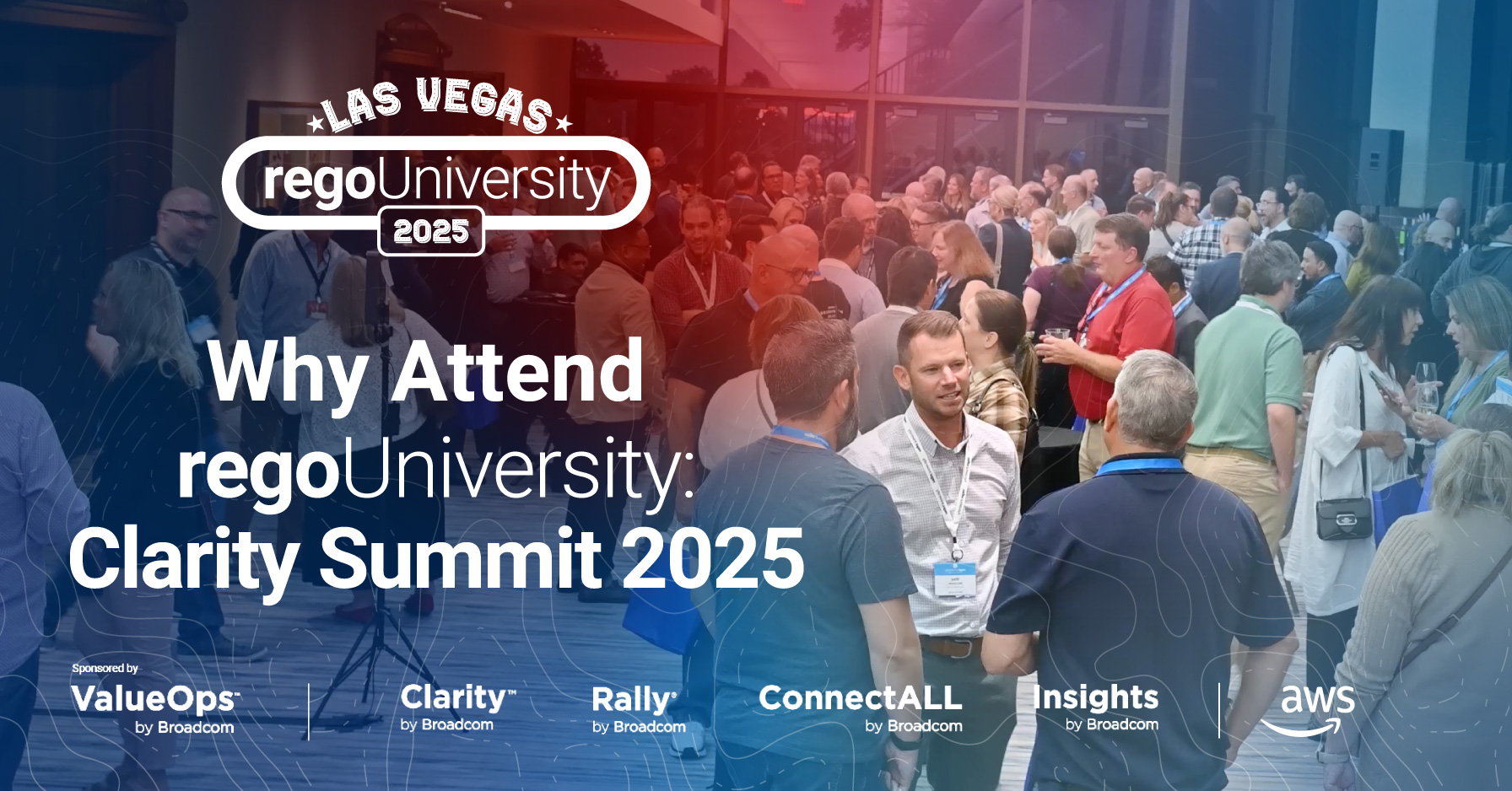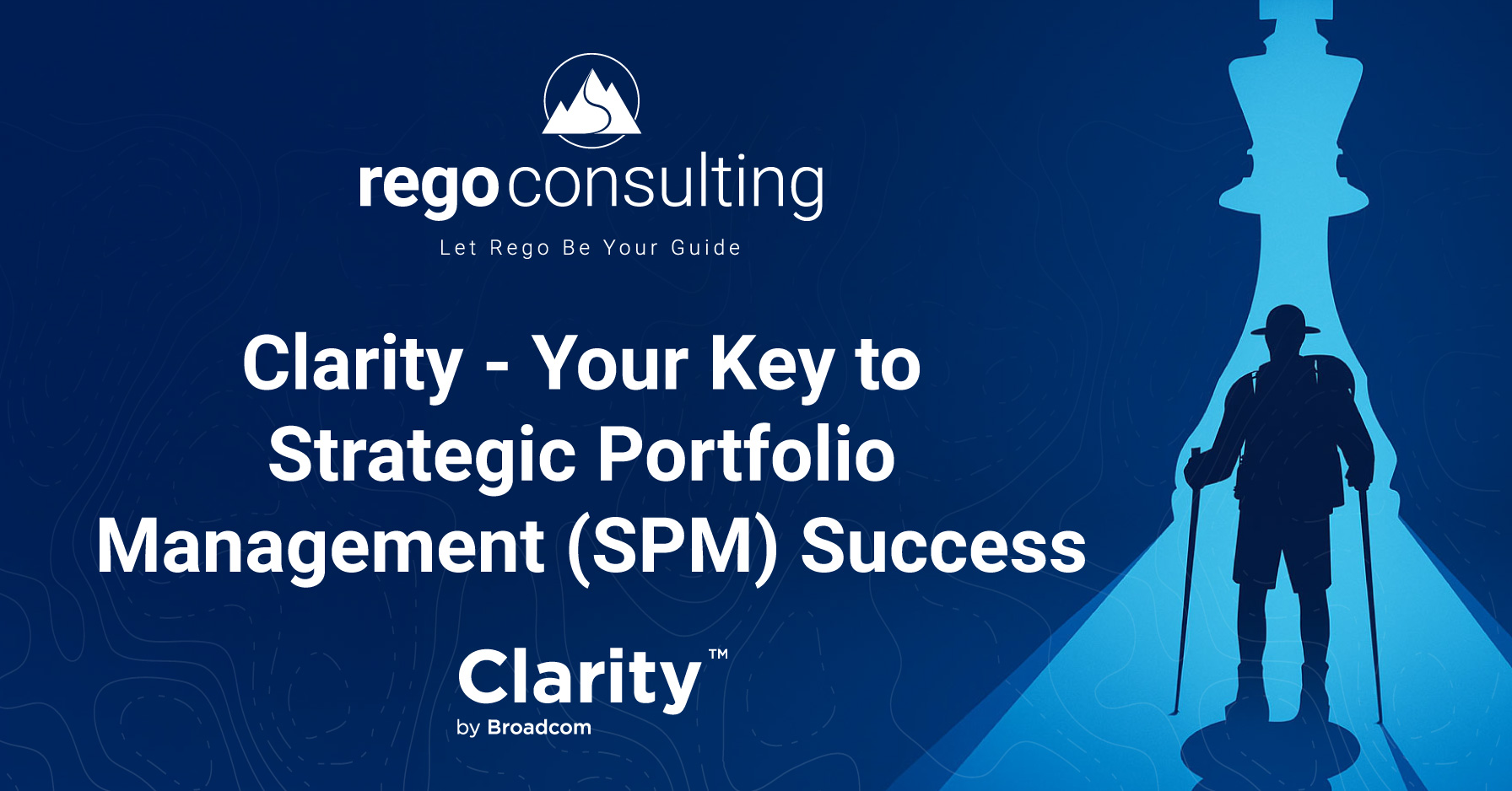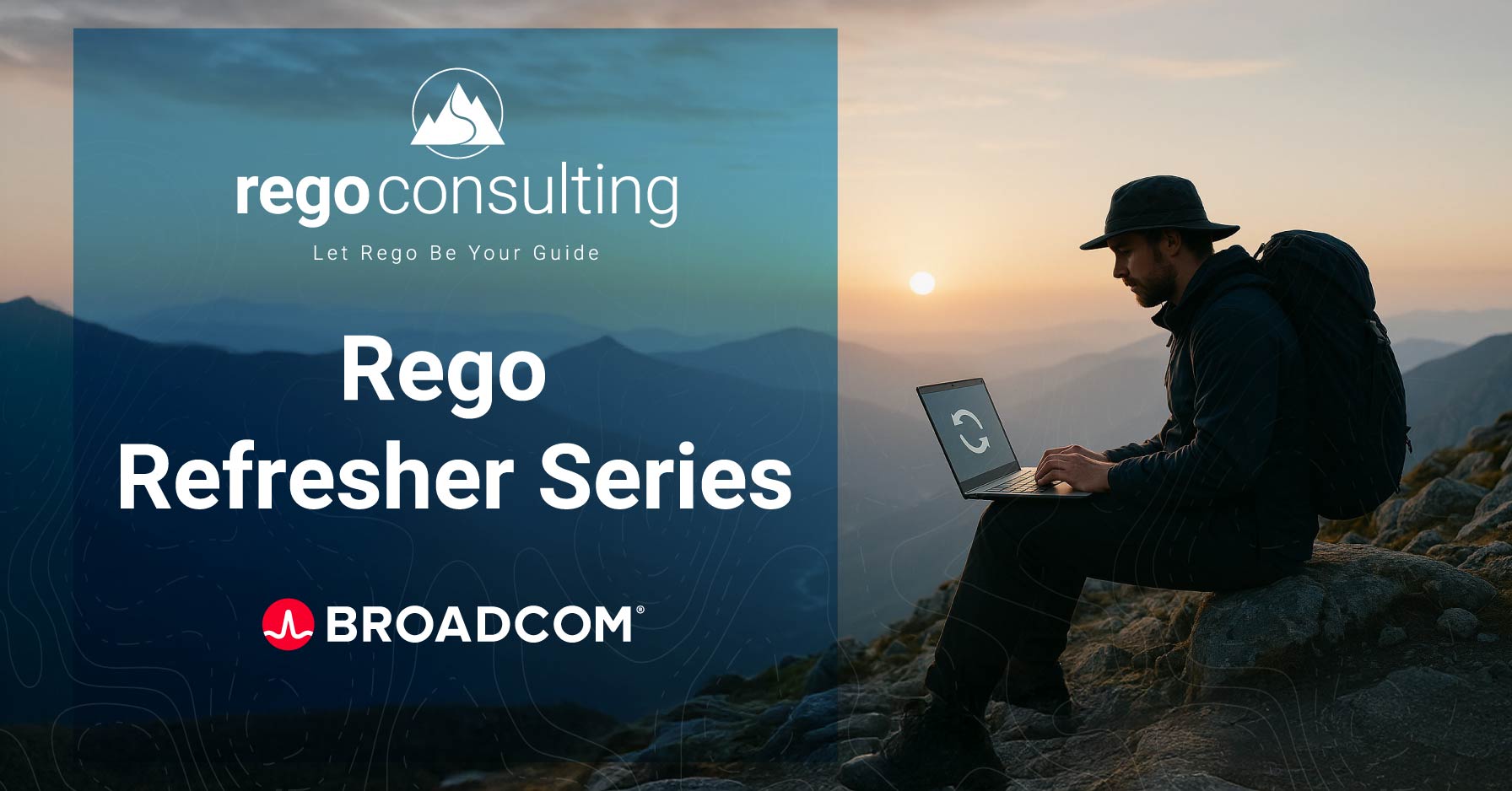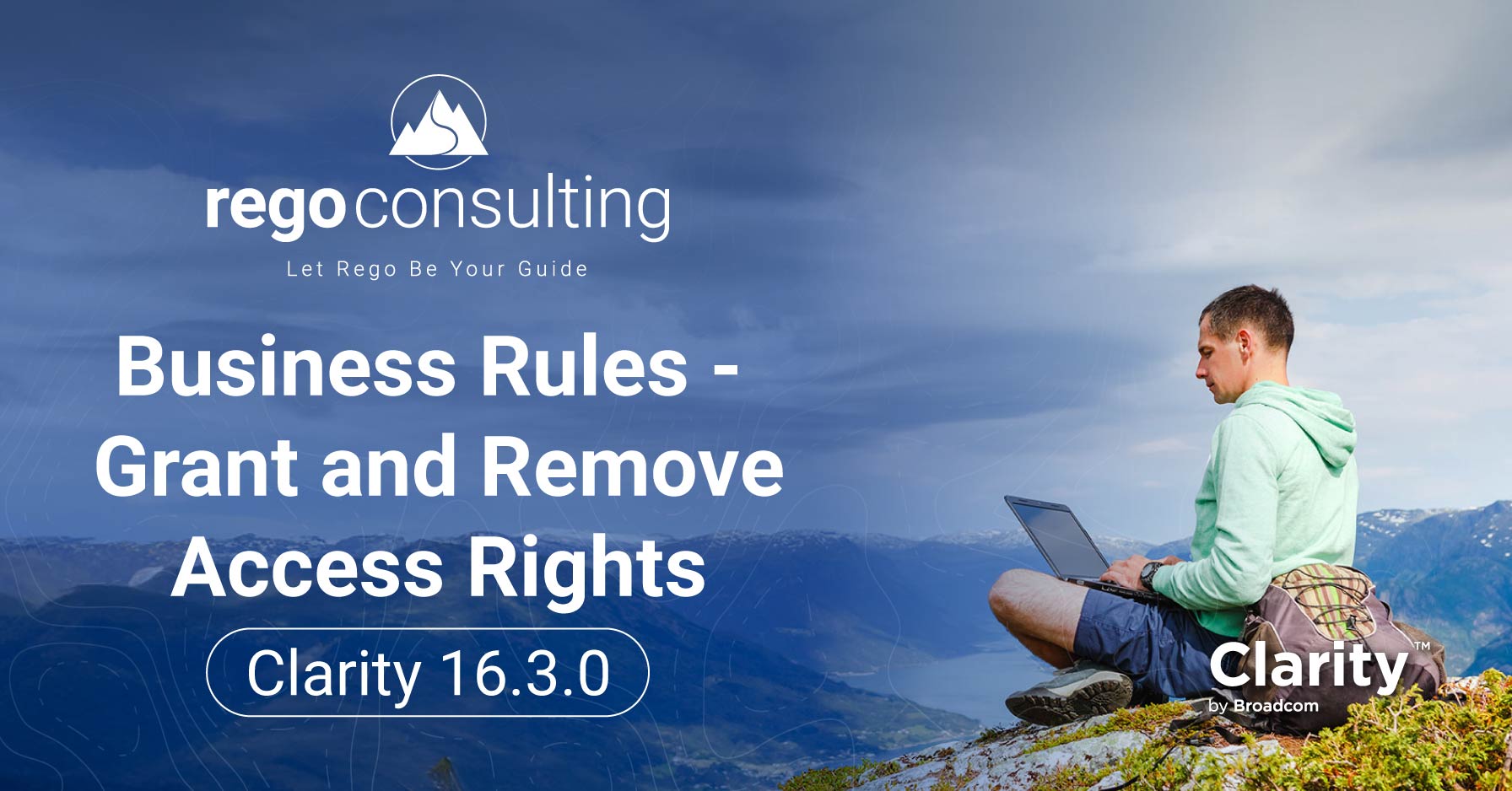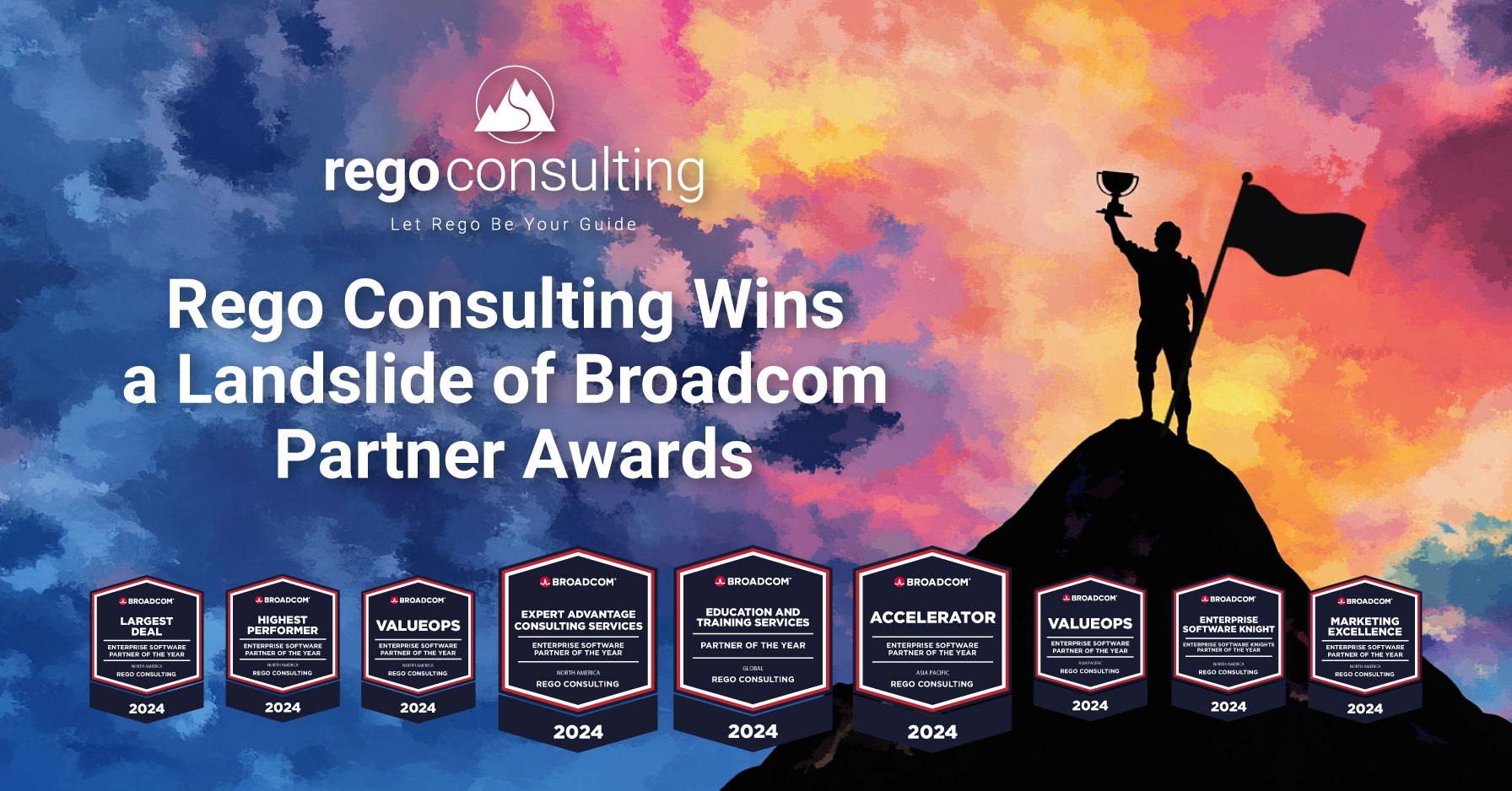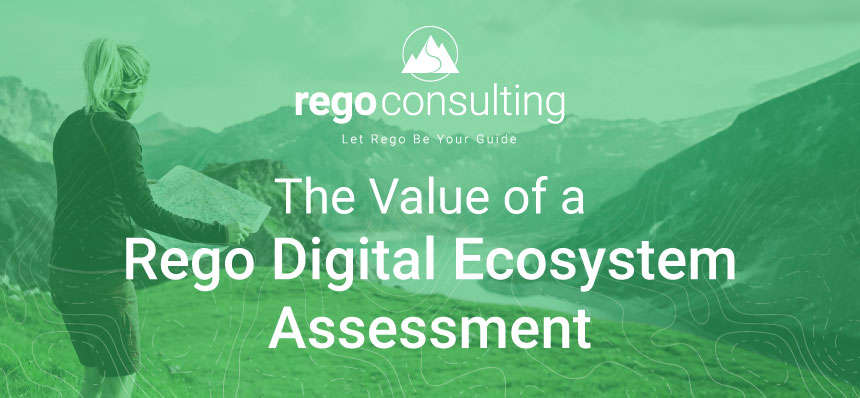
Rego’s Digital Ecosystem Assessment (DEA) involves carefully evaluating an organization’s entire project management practice, including the people, processes, technology, and governance practices. We recognize that the project management is not limited to the software or technologies used. Human elements need to be aligned with technology to ensure success. Our Digital Ecosystem Assessment considers all contributors.
Benefits of a Digital Ecosystem Assessment
While we often focus energy on the organization’s use of Clarity, this assessment looks at the entire “ecosystem.” We can help you realize improvements in many areas across multiple technologies with this method.
Utilizing the results of a Digital Ecosystem Assessment, we have seen
- Increased adoption and C-level support
- Improved communication across teams and between tools
- Increased availability of resources time by automating routine tasks
- Improved reporting, including better reporting of data housed in other tools
- Better portfolio alignment
- Improved focus on value over project or product
- Decreased time-to-value, time-to-market, and decision-making time
Why do we use the word “ecosystem?”
The concept of a “digital ecosystem” has been around for nearly 20 years. Simple versions of digital ecosystems include the familiar Microsoft Office Suite or Amazon Web Services. However, it is now more complicated and consists of the entire collection of business solutions an organization uses. Some organizations hold thousands of software licenses or subscriptions to help manage their business processes. While we focus on systems supporting project or value stream management (VSM) activities, the “ecosystem” may also include financial, human resource, IT and asset management, sales, productivity tools, and more.

Common Digital Ecosystem Challenges
Our Rego guides have noticed six common digital ecosystem challenges. These six challenges fall into two camps. Either a mature company restricted by legacy systems and ways of thinking or new companies gripped with growing pains.
- Legacy systems and processes: Our consultants understand that some legacy systems may be heavily embedded into the organization, and a “rip out and replace” method may not be in everyone’s best interest. But they can help you identify issues and guide you towards using the current solution better.
- Fast unstructured growth: Companies that grow quickly often end up with patchworked systems that no longer support their needs.
- Digital inflexibility and internal resistance: Sometimes, people resist change or have the attitude of “we’ve always done it this way.”
- Siloed decision-making: Teams often do not know what the other teams are working on, which results in redundant work, poor resource allocation, and lack of alignment.
- Lack of holistic digital strategy and roadmap: Teams often have a roadmap, but it is not part of the overall company strategy or corporate goals.
- Failure to tie efforts to value streams: While many companies are now considering value, some are still tied to project or product thinking rather than focusing on value.
How do we know if we need a digital assessment?
We can quickly help you determine if your organization could benefit from a DEA. We usually begin by asking a few simple questions to help us access the status of your digital ecosystem. If you do not understand the questions or are not sure who in your organization would be able to answer the questions, we can help you discover and define the roles that may be the key holders of that knowledge.

Questions we may ask include,
- Do you have a roadmap plan for your PPM tool? Have you defined your targeted outcomes from using the PPM tool?
- Are you considering transitioning to Agile or a value-focused model?
- Do you feel overwhelmed by the tools available? Or confused by what their purpose is?
- Would a third-party perspective help you “get out of your own way?”
- Do you know the best practices to help your organization reach its goals?
- Would a quick-win help energize your teams?
- Does everyone understand how all your business solutions work together?
- Do you feel that people and processes should be evaluated to produce an accurate overall assessment?
Digital Ecosystem Assessment: What are we looking for?
Our assessment evaluates your entire project management “ecosystem” state across four key business areas. We compare the information we gather with current industry best practices.
The four key areas include,
People: While technology has made meeting business goals easier, people are still the core part of helping ensure success.
Process: Bogged-down or ill-fitting processes may be heavily impacting productivity and morale.
Technology: We review the entire digital ecosystem to discover what small and large changes may be needed to support transformation.
Governance: How the leadership supports efforts, interacts with data, and visualizes core values may impact work.
Assessment Process Overview
The Digital Ecosystem Assessment includes four parts.
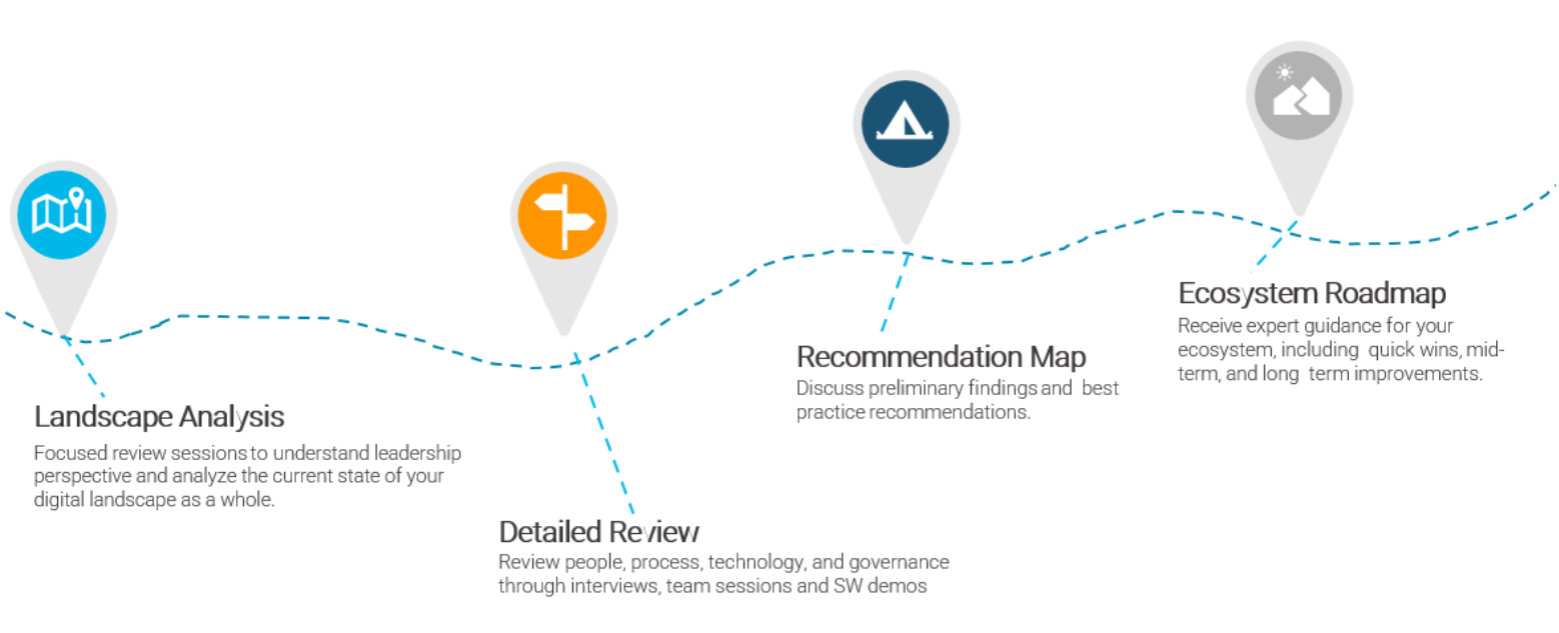
How long does a DEA take?
Each situation is unique, but most often, an assessment takes four to six weeks. The assessment work includes,
- Reviewing and analyzing documents and processes
- Assessing tools, technologies, and use cases
- Interviewing key stakeholders and end-users
- Compiling information to baseline against best practice
- Producing recommendations
Recommendations: What might be included?
After assessing the people, processes, tools, and governance components of your current state, we will develop recommendations that may include the following areas: vision, people and organizations, engagement model, governance, processes, tools, metrics, and culture.
Recommendations developed for aligning to a future state may include,
- Defining and communicating vision
- Modifying accountability
- Establishing a Center of Excellence
- Improving governance to enforce accountability
- Making a final decision on non-employee time tracking
- Deploying Clarity configuration changes and connectors
- Establishing standard metrics for decision-making
- Increasing adoption by appointing an Organizational Change Manager
Each recommendation would include actions specific to the needs of your current state and the company’s overall goals and values.
What happens after the assessment?
After the DEA is complete, Rego will be ready to partner with you to work through the roadmap of improvements.
For example, we may
- Help create the metrics needed to monitor progress, accountability, and efficiency.
- Create a value stream map that demonstrates the current view of an Idea moving through the process and the future view so you can visualize how improvements may impact efficiency.
- Provide integration diagrams to help you see how suggested integrations will help the tools in your ecosystem communicate better.
- Help with supporting efforts to achieve buy-in and adoption of new tools and processes.
- Work alongside your teams similar to an in-house employee to fill open roles. We also can help with hiring and training.
- Help model tool usage and flow around roles.
- Assist with guiding goals from project-based to value-based.
The Digital Ecosystem Assessment is the first step towards creating a valuable relationship between Rego and your business. Our experts have worked with many Fortune 500 organizations to help them make large steps towards meeting their goals and aligning value streams.
Rego Can Help
If you have questions about switching to Product Funding or have been exploring using it in your organization, Rego can help. Our team of expert Agile guides have helped countless companies through their project to Product Funding transformations. They know how to overcome common challenges like organizational resistance and cultural change, while implementing best practices and equipping you with support that will prepare you to adapt quickly. To learn more, watch our free on-demand webinar on Product Funding with Clarity and Rally Software, or contact us.

Rego also offers free configuration and adoption assessments, webinars, and half-day training classes for Clarity and Rally Software® on Roadmaps, Portfolio Management, Power BI, Scaled Agile, Jaspersoft.
For a full list of Clarity PPM services, visit regoconsulting.com.
